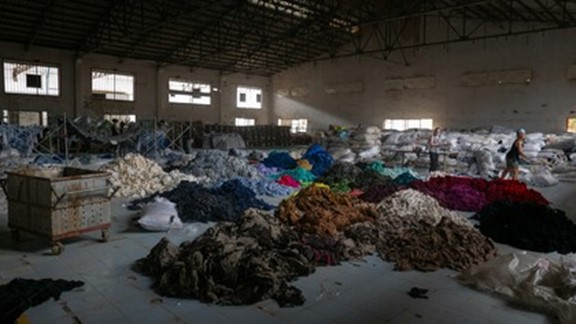It was found in Statistics from South African Market Insights, quoted in an article by South African Market Insights, quoted in an article by Proudly South African, South Africa’s contribution to manufacturing sales has declined from R7 billion in 1998, to R2 billion in January 2022. This in itself is alarming news. It highlights the impact fashion imports have on the economy and the need for more entrepreneurs to enter the sector. Local manufacturing business like Hannah Grace Maternity Wear have the potential to make a major contribution to the economy – which is why founder Lyndall Moodley is proud of the growth her company has achieved, and the employment it has been able to provide.
The fact that the country has lost R 5 billion due to cheap imports is worrying. The government needs to do more to support good quality goods that are locally made. There needs to be tariffs on cheap imports and companies that outsource their labour to foreign countries like China. The decline in trade of locally made goods means a decline in jobs. Local entrepreneurs like Lyndall Moodley need to be supported in their business and enabled to sell their goods at affordable prices. It is good that entrepreneurs like Moodley were able to create and manufacture these goods. They and Moodley are an example of South Africa’s manufacturing and business potential. It could go a long way if supported by the right tools.
“The reality is the high prevalence of fashion imports comes at a price local manufacturers cannot beat. This is why it is so vital that local manufacturers like Hannah Grace receive support,” says Laurence Woodburn, Moodley’s mentor at business development experts Fetola. “Not only do local manufacturers provide employment; they also benefit the green economy and build a sense of pride and innovation. This all provides economic benefits by creating value and multiplying the base Rands invested,” he said. The trajectory by followed by Hannah Grace Maternity wear stands as a case in point. Moodley established her company seven years ago when she saw there was a gap in the market for locally produced boutique clothing. Initial business was slow and highly competitive because she was directly competing with loads of fashion retailers that sell cheap imports.
The government can’t subsidize local businesses without ruining the market. Subsidizing local businesses to sell their goods at a cheaper price ruins competition. The state needs to negotiate with countries from which the cheap imports come and look at those nations that have been able to restrict access of cheap imports. South Africa is a member of BRICS. Among these members are China, Brazil and India. If India and Brazil can leverage their influence to prevent the Chinese regime from using its powerful economic muscle might against them, South Africa needs to utilize its own regional influence to minimize the effects of sales of cheap imports on the economy. The country needs to support its economic potential with not just “free but fair” trade. It is the consumers who determine the products they purchase. However, looking into new technological innovations to grow business doesn’t harm anyone.
Durban North is not without its perks when it comes to venues. The Northlands Primary School, in Durban North is the shining gem in supporting local. The regular I heart Market, which took place this month on Saturday, 2 March at Northlands Primary School, in Durban North, is an opportunity for customers to dive into the vibrant world of some of the city’s finest artisans and craft makers. The market is renown for its impeccable ethos of craftmanship with quality being the focus of the carefully curated selection of handcrafted treasures spanning fashion, décor, jewellery, candles, natural skincare, kids’ clothing, toys, deli goods, delicious meals and much more.
‘At a heart market, we are not just a marketplace; we are a celebration of the local creative spirit. Our market pulsates with the heartbeat of Durban’s makers, showcasing the dedication and passion of homegrown artisans, creators and entrepreneurs,” said the manager of the market, Tanith Molliere.
The arts definitely need support and patronage for local talent. It is essential that we lend our support to projects such as these. Heart Markets are a source of individual creativity. The fact that local schools are supporting these market ventures should serve as a reminder that education is the key to unlocking great talent. Education is essential to moulding talent bringing it to light. The city needs this to show case the light of local talent. Not just for commercialism but to bring hope to those who need it. The twin pillars of talent and craftmanship are needed to unlock dormant economic potential that could stagnate.
Creating crafts and art to sell is a way to generate wealth. It may not be enough to rival BRICS, but it is enough to lay a foundation. Local businessmen and businesswomen need to also be tec savvy and utilise the resources and tools provided by the Fourth Industrial Revolution. Local is lekker.
Article written by:
Yacoob Cassim
Journalist at Radio Al Ansaar


